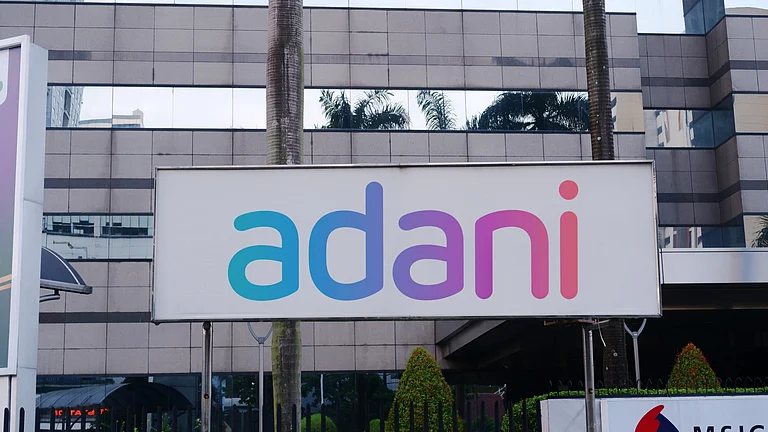Russia’s invasion of Ukraine has triggered sanctions against the country as well as calls to exclude the country from the global payments system called SWIFT.
On Friday, the German Finance Minister said the country is open to cutting Russia off the SWIFT but must calculate the consequences for its economy first. Canada PM Justin Trudeau also supported barring Russia from the system.
The exclusion could cripple its ability to trade with most of the world and deal a heavy blow to its economy.
However, it could also have some impact on India among other countries as well.
Here's why SWIFT is important for international banking and why ban on Russia may impact other countries as well.
What is SWIFT and what does it do?
Society for Worldwide Interbank Financial Telecommunication (SWIFT) is the backbone of the international financial transfer system.
The network is used by more than 11,000 financial institutions and companies in nearly 200 countries to send secure messages about transfers of money and other transactions.
Trillions of dollars are transferred using SWIFT each year.
SWIFT was also allegedly used by Indian fugitive diamond merchant Nirav Modi to defraud the Punjab National Bank (PNB) of Rs 12,967 crore.
An exclusion from SWIFT would mean Russian banks could not use it to make or receive payments with foreign financial institutions.
Impact on India
Amid sanctions on Russia, India might face interruption and delay in arms import.
Bilateral trade between India and Russia stood at $9.4 billion so far this fiscal year, against $8.1 billion in 2020-21.
India majorly imports crude oil, petroleum products, coal, fertilisers, gold, precious stones, and precious metals. Besides, Russia is also India’s biggest arms supplier. Almost 60-70% of its military supplies are from Russia.
India is procuring the S-400 air defense systems from Russia. It also recently signed a contract for AK-203 rifles with production slated to begin in India soon.
Sanctions on Russia could jeopardize India’s recent $375 million BrahMos cruise missile export contract with the Philippines.
However, there is some relief for the country as India and Russia bilateral payments are made in Indian Rupee and sometimes in other currencies like Euro for both imports and exports. So, sanctions on Russia may not have an impact on the payments.
The arrangement ensures that the Russian payments will be settled even if Russia is cut off from the SWIFT gateway.
But the geopolitical crisis between Russia and Ukraine spells trouble for India among other Asian economes, according to analysts.
“A sustained rise in oil and food prices would have adverse impacts on Asia’s economies, manifested through higher inflation, weaker current account and fiscal balances, and a squeeze on economic growth,” wrote analysts at Nomura in the coauthored report.
As regards India, every 10 per cent rise in crude oil price, Nomura said, will shave off around 0.2 percentage points (pp) from the GDP growth and widen the current account by 0.3 per cent.
Impact on other countries
Russia is heavily reliant on SWIFT due to its multibillion exports of hydrocarbons denominated in US dollars. The cutoff would terminate all international transactions, trigger currency volatility, and cause massive capital outflows.
In 2012, some Iranian banks were cut off from SWIFT following which the country lost almost half of its oil export revenues and 30 percent of foreign trade.
Russia has the second-most users after the US, with some 300 Russian financial institutions belonging to the system. More than half of Russia’s financial institutions are members of SWIFT.
In 2014, Western countries had threatened to exclude Russia from SWIFT following its annexation of Crimea. Alexei Kudrin, Russia’s former finance minister, then forecast that such a move could cause Russia’s GDP to shrink by 5 per cent.
A ban on Russia could make international trade more difficult and hurt other countries economies.
European countries will not be able to receive goods – oil, gas, metals, and other important components of their imports.
Exporters would find selling goods to Russia riskier and more expensive.
The United States and Germany would stand to lose the most if Russia were disconnected, because US and German banks are the most frequent SWIFT users to communicate with Russian banks.
The EU is cautious due to its dependence on Russia for oil and gas. The EU relies on Russia for around 40% of gas needs.
On Thursday, US and EU opted not to cut Russia off from SWIFT while leaving the door open to revisiting the possibility. Still, some European leaders, including in the United Kingdom, favour blocking Russia from SWIFT.































